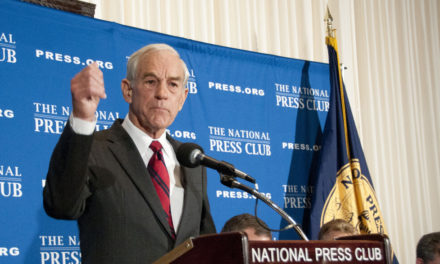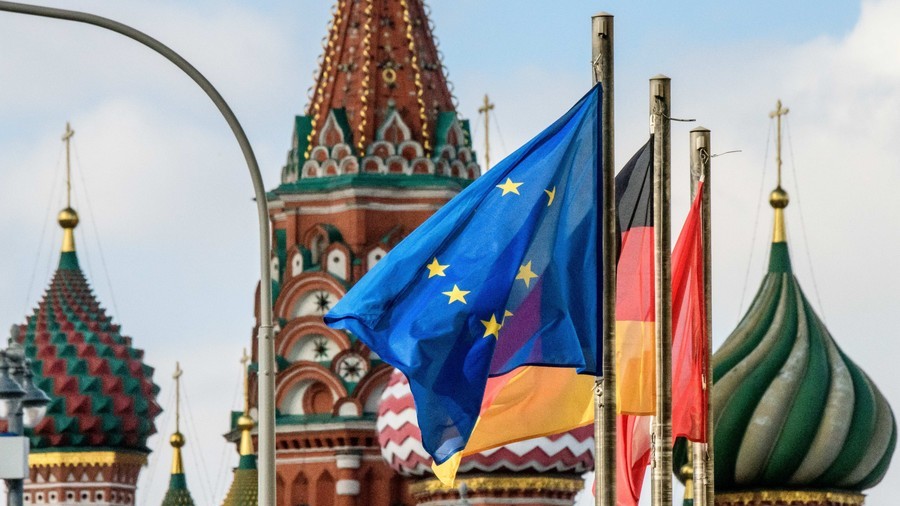Ron Paul
schreef het boek 'End the Fed' en het hieronder opgenomen artikel
waarin het instituut met zijn naam, het Ron Paul Institute, ingaat op
de uitspraak van Paul dat we de laatste dagen van de FED naderen.... (FED = Federal Reserve, de centrale bank van de VS)
Paul is
bepaald geen fan van de FED, zoals je wellicht al wist en hij stelt
dan ook dat de FED met haar beleid van het terugbrengen van rentes
ruimschoots heeft bewezen dat dit niet werkt, maar daar desondanks mee doorgaat... Hij stelt zelfs dat
de FED de belichaming is van een populaire definitie van waanzin:
telkens dezelfde actie nemen en dan verschillende resultaten
verwachten..... Paul betoogt dat renteverlagingen niet helpen en wijst daarbij op het beleid van de FED sinds 2008, een beleid dat geen werkelijke economische groei bewerkstelligde, of zelfs maar een nieuwe recessie kan voorkomen.......
In de EU is het niet anders, de ECB doet in feite hetzelfde als de FED en
verwacht daarvoor economische groei...... Een beleid dat niet ten dienste
staat van de grootste bevolkingsgroep in de EU, maar dat de
aandeelhouders en de grote bedrijven bevoordeelt..... De
pensioenfondsen konden voorheen op een rente van zo'n 4% rekenen en o.a. daarmee werd aan de verplichtingen voldaan, terwijl er nu pensioenfondsen zijn die al een te lage buffer hebben om te kunnen voldoen
aan haar verplichting, het beloofde pensioen uitkeren aan deelnemers.....
Met de hervorming van het pensioenstelsel wil men deze fondsen nog meer ruimte geven om te gokken op de aandelenbeurs, de dood in de pot, daar we om de zoveel jaar met een crisis te maken hebben en deze fondsen op die momenten enorme kapitalen verliezen.......
Zelfs de banken klagen over het verlagen van de rente en zien een eventuele negatieve rente (dus dat je als spaarder de bank moet betalen voor jouw spaargeld..) als nachtmerrie en toch vervolgt men de ingeslagen doodlopende weg........ Vergeet hierbij niet dat de banken een dubieuze rol spelen, immers zij adviseren klanten ook wat betreft de aan- en verkoop van aandelen, voorts beleggen de grote banken zelf ook in aandelen.......
Het is
zonder meer een schande dat een (ondemocratische) 'volksvertegenwoordiging' als die van de EU, juist niet de belangen het
volk behartigt, maar die van de grote bedrijven, hun aandeelhouders en de
welgestelden......
Lees het
volgende artikel van het Ron Paul Institute, gepubliceerd op Money and Markets, waarin ook aandacht
voor de handelsoorlog die het beest Trump heeft ontketend en zie hoe
we dagelijks worden besodemieterd door de politiek, de financiële maffia en het bedrijfsleven:
Ron Paul: We Are Witnessing the Final Days of the Fed
The
author of a book called “End the Fed,” Ron Paul is certainly no fan of the
Federal Reserve.
And
in his latest weekly column, Paul says we are nearing the end of days
for the U.S. central bank.

The
Federal Reserve, responding to concerns about the economy and the
stock market, and perhaps to criticisms by President Trump, recently
changed course on interest rates by cutting its “benchmark” rate
from 2.25% to 2%. President Trump responded to the cut in already
historically low rates by attacking the Fed for not committing to
future rate cuts.
The Fed’s action is an example of a popular definition of insanity: doing the same action over and over again and expecting different results. After the 2008 market meltdown, the Fed launched an unprecedented policy of near-zero interest rates and “quantitative easing.” Both failed to produce real economic growth. The latest rate cut is unlikely to increase growth or avert a major economic crisis.
It is not a coincidence that the Fed’s rate cut came along with Congress passing a two-year budget deal that increases our already $22-trillion-dollars national debt and suspends the debt ceiling. The increase in government debt increases the pressure on the Fed to keep interest rates artificially low so the federal government’s interest payments do not increase to unsustainable levels.
President
Trump’s tax and regulatory policies have had some positive effects
on economic growth and job creation. However, these gains are going
to be short-lived because they cannot offset the damage caused by the
explosion in deficit spending and the Federal Reserve’s resulting
monetization of the debt. President Trump has also endangered the
global economy by imposing tariffs on imports from the US’s largest
trading partners including China. This has resulted in a trade war
that is hurting export-driven industries such as agriculture.
President
Trump recently imposed more tariffs on Chinese imports, and China
responded to the tariffs by devaluing its currency. The devaluation
lowers the price consumers pay for Chinese goods, partly offsetting
the effect of the tariffs.
The
US government responded by labeling China a currency manipulator, a
charge dripping with hypocrisy since, thanks to the dollar’s world
reserve currency status, the US is history’s greatest currency
manipulator. Another irony is that China’s action mirrors President
Trump’s continuous calls for the Federal Reserve to lower interest
rates.
While
no one can predict when or how the next economic crisis will occur,
we do know the crisis is coming unless, as seems unlikely, the Fed
stops distorting the economy by manipulating interest rates (which
are the price of money), Congress cuts spending and debt, and
President Trump declares a ceasefire in the trade war.
The
Federal Reserve’s rate cut failed to stop a drastic fall in the
stock market. This is actually good news as it shows that even Wall
Street is losing faith in the Federal Reserve’s ability to manage
the unmanageable — a monetary system based solely on fiat currency.
The erosion of trust in and respect for the Fed is also shown by the
interest in cryptocurrency and the momentum behind two initiatives
spearheaded by my Campaign for Liberty — passing the Audit the Fed
bill and passing state laws re-legalizing gold and silver as legal
tender. There is no doubt we are witnessing the last days of not just
the Federal Reserve but the entire welfare-warfare system. Those who
know the truth must do all they can to ensure that the crisis results
in a return to a constitutional republic, true free markets, sound
money and a foreign policy of peace and free trade.




